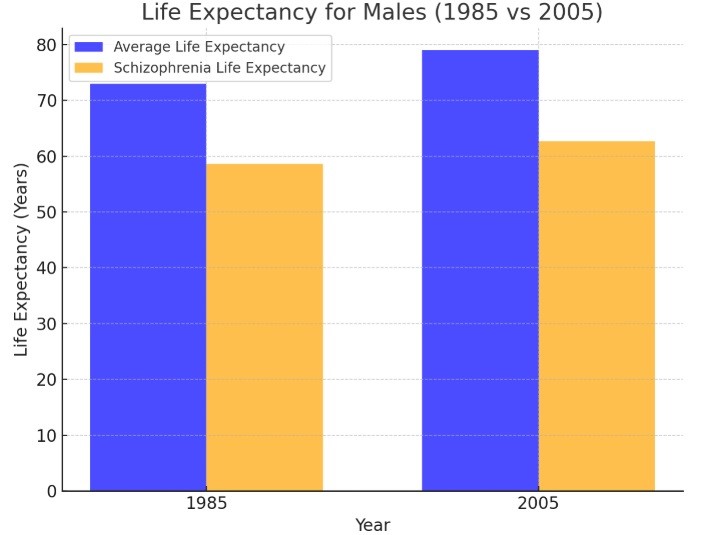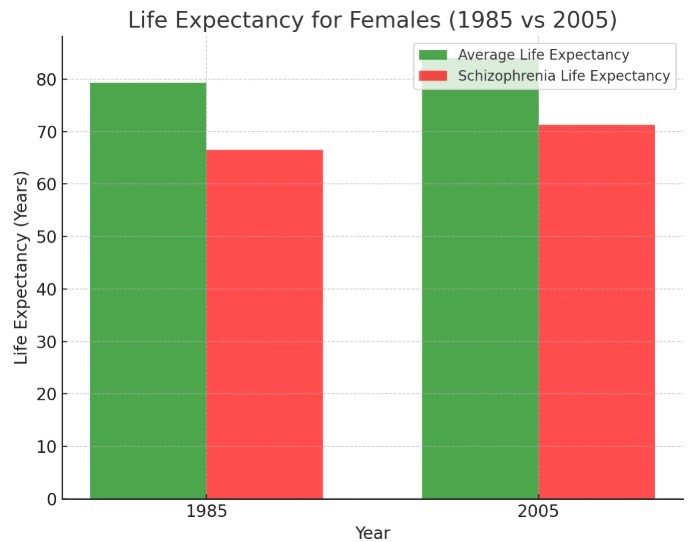The disparity in life expectancy between individuals with severe mental illness and the general population in Australia continues to widen, underscoring alarming inequities in healthcare access and outcomes.
On average, people with severe mental illness live 18 years less than the rest of the population, with an average life expectancy of just 65 years, compared to the national average of 83 years. These figures have shown little improvement over the past century and are a stark contrast to life expectancy trends in other parts of the world.
Global Comparison of Life Expectancy for People with Severe Mental Illness
Australia’s struggle to bridge the life expectancy gap is evident when compared to other countries. The following table highlights the disparity:
Source: British Medical Journal
Countries like Hong Kong have significantly higher life expectancies for people with severe mental illness, emphasising the need for Australia to address systemic shortcomings.
The Widening Life Expectancy Gap in Western Australia
Research from Western Australia (WA) provides a detailed view of how the gap has increased over time for individuals with schizophrenia. Despite overall gains in life expectancy for the general population, those with schizophrenia have seen a growing disparity:


These figures demonstrate that while overall life expectancy has improved, the health outcomes for those with severe mental illness have not kept pace.
Individuals with severe mental illness face numerous challenges that exacerbate their health outcomes and life expectancy:
Premature Deaths: Nearly 80% of premature deaths in this population are attributed to preventable physical health conditions.
Cardiovascular Disease: 24% of people with psychotic illnesses are at high risk of cardiovascular disease.
Obesity: 45% of individuals with severe mental illness are obese, significantly increasing their risk for other health complications.
Cancer Risk: People with severe mental illness are 50% more likely to develop cancer compared to the general population.
These compounding disadvantages contribute heavily to the life expectancy gap and highlight the systemic neglect in addressing their physical and mental health needs.
Australia’s healthcare system continues to struggle to meet the needs of individuals with severe mental illness. The National Mental Health Commission has acknowledged the lack of progress in addressing these issues, stating in its 2023 report:
"We are not seeing improvement in mental health and wellbeing for people in Australia over the past decade or more, and some are experiencing a decline in whole-of-life outcomes.”
Source: Robinson, N. (2024). This shocking life expectancy gap hasn’t shifted in a century Retrieved from www.theaustralian.com.au